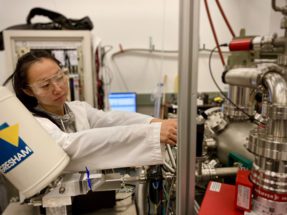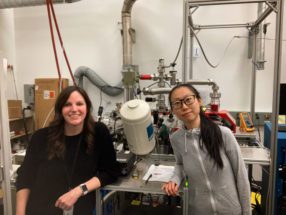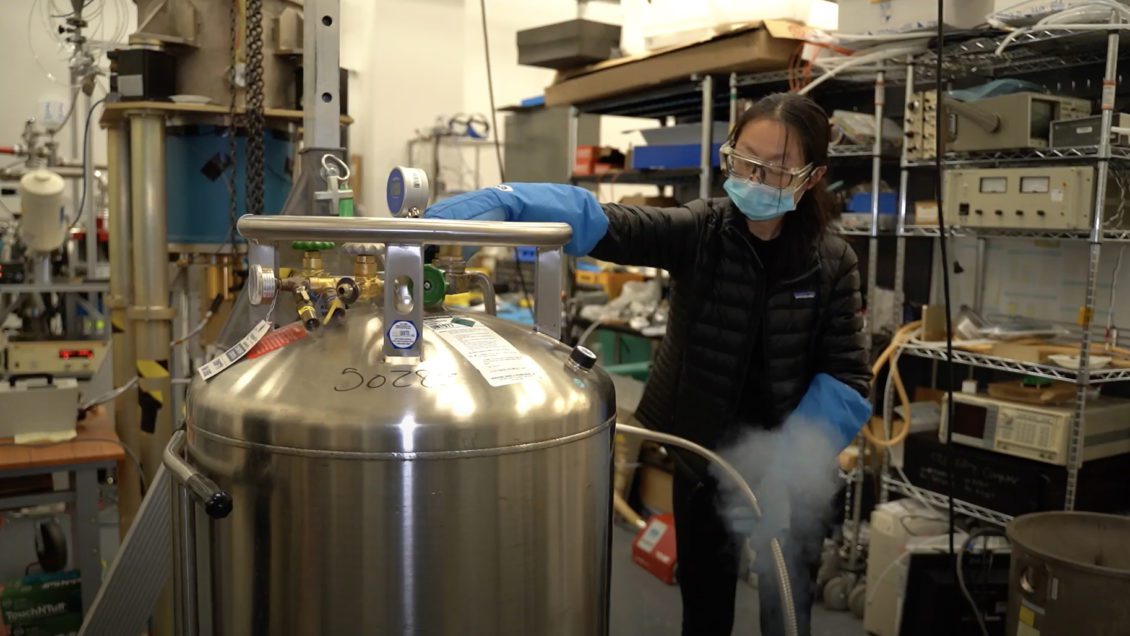Clemson University graduate student Yang Yang will spend the next three months doing laboratory research in Cambridge, Massachusetts, thanks to a pre-doctoral fellowship from the Harvard & Smithsonian Center for Astrophysics.
She is the fourth Clemson Department of Physics and Astronomy student to earn the prestigious award in the past several years.

Yang’s research is laboratory astrophysics, an area of physics that reproduces extreme physical environments found in astrophysical objects such as stellar coronae, merging stars and supernova remnants. A member of Professor Endre Takacs’ research group at Clemson, she had been a visiting student at the Smithsonian Astrophysical Observatory before being invited to apply for the pre-doctoral fellowship, which will run through August.
During the fellowship, she will use an electron beam ion trap (EBIT) to generate atomic data for AtomDB, a database of X-ray spectra that provides essential information for studying conditions in many astrophysical environments, including those near black holes, stars and neutron stars.
An EBIT allows scientists to strip atoms of all their electrons, producing ion charge states that do not exist on Earth outside a lab environment. Highly charged ions are found in hot astrophysical plasmas and solar flares.
In a recent study, Yang measured atomic data that allows the temperature of distant hot astrophysical objects to be determined with more reliability.

“Yang has always been a very diligent and successful student, and her talent is now emerging in her research. She uses highly specialized research equipment to study the radiation of million-degree plasmas in the laboratory. To understand the emitted spectra and deduct practically important parameters, the knowledge of fundamental atomic theory is needed,” Takacs said. “What makes Yang stand out is her ability to deal with this complexity and put together the pieces into a coherent and important result, even if it takes months and months of hard work.”
Yang will work closely with Amy Gall, one of Takacs’ former students who earned her Ph.D. from Clemson in 2019 and is a postdoctoral researcher at the SAO.
“Most of the time at Clemson, I’m doing data analysis. This fellowship is a great opportunity for me to get more lab experience,” Yang said.
Yang became interested in astrophysics while taking a class taught by Professor Bradley Meyer. He specializes in nuclear astrophysics, especially the nuclear processes that formed the chemical elements in the early universe and stars.
Yang joins Gall, Xiuriu Zhao and Jordan Eagle as Department of Physics and Astronomy graduate students who have received CfA pre-doctoral fellowships. Zhao and Eagle were members of Associate Professor Marco Ajello’s research group.
“Both Marco and I conduct research in areas closely tied with the Harvard & Smithsonian Center for Astrophysics programs. Our students can contribute to their research success,” Takacs said. “Apart from the obvious that these graduate students are excellent, I believe their success is also a testament to the prestige of our research groups in our respective fields. Other well-known international and national institutions also collaborate with our students for the same reason.”
The College of Science pursues excellence in scientific discovery, learning, and engagement that is both locally relevant and globally impactful. The life, physical, and mathematical sciences converge to tackle some of tomorrow’s scientific challenges, and our faculty are preparing the next generation of leading scientists. The College of Science offers high-impact transformational experiences such as research, internships, and study abroad to help prepare our graduates for top industries, graduate programs, and health professions. clemson.edu/science
Get in touch and we will connect you with the author or another expert.
Or email us at news@clemson.edu

